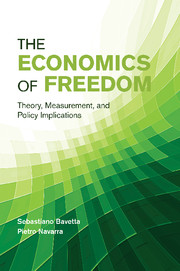1 - Introduction
Published online by Cambridge University Press: 05 July 2012
Summary
The centrality of the idea of freedom in cultures and societies is undisputed; the meaning of freedom is essentially contested. Some scholars use this term to indicate a space where each individual may act as he likes; others refer to the exercise of autonomous judgment; others underline the development of an inner self; others equate freedom to availability of choices; and the list is not exhaustive.
Take the case of the United States. Although the idea of freedom is at the heart of the nation's creed, two different visions of individual liberty emerged in the twentieth century. The difference between them becomes most apparent when we compare their prescriptions in the touchy domain of social security. On the progressive camp, inspired by Franklin Delano Roosevelt's New Deal, the promotion of freedom from want and fear is not necessarily diminished by the intervention of the state; instead, it can often be advanced only through the vigorous action of government. In this perspective, economic fairness and distributive justice have been the guiding principles at the basis of the progressive conception of social security. Differently, on the conservative camp, individual liberty is affirmed in a civil society where the role of government is limited and families, neighborhoods, and faith communities sustain the moral foundations of freedom. In this view, public policies are based on three major ingredients: freedom of choice, individual responsibility, and freedom from government dependence. In the words of George W. Bush’s second inaugural address, “in America’s ideal of freedom the public interest depends on private character […] Self-government relies, in the end, on the governing of the self.”
- Type
- Chapter
- Information
- The Economics of FreedomTheory, Measurement, and Policy Implications, pp. 1 - 14Publisher: Cambridge University PressPrint publication year: 2012



